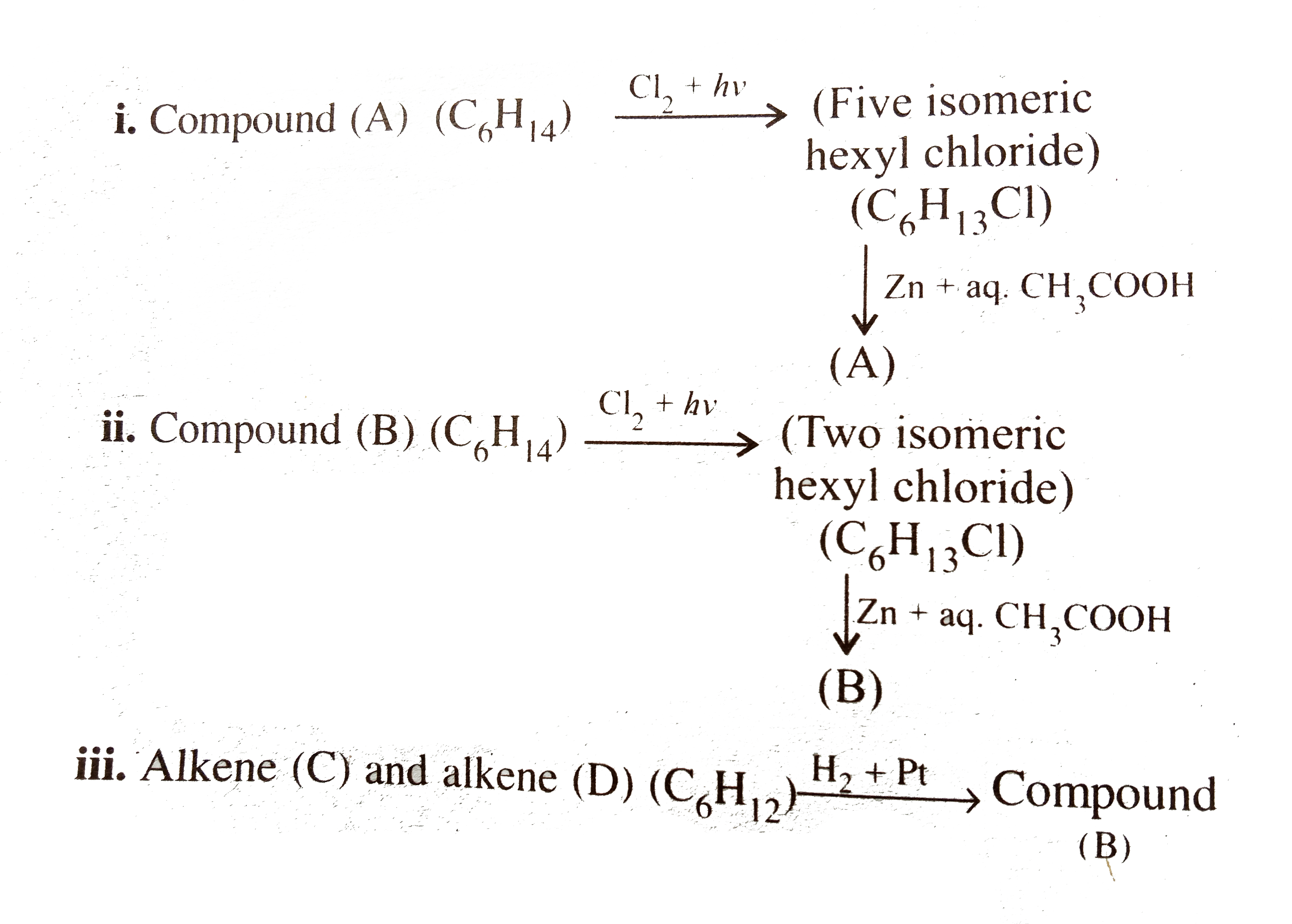
(i) Compound (A) is:-
(ii) Compound (B) is:-
(iii) Isomeric hexyl chloride obtained from B are:-
(iv) Compound C is:-




The correct Answer is:D
Isomeric hexyl chlorides obtaines obtained from (B) are (VI) and (VII).
Topper's Solved these Questions
- BOOK - CENGAGE CHEMISTRY ENGLISHCHAPTER - ALKANES AND CYCLOALKANESEXERCISE - True and False1videos
ALKANES AND CYCLOALKANES
- BOOK - CENGAGE CHEMISTRY ENGLISHCHAPTER - ALKANES AND CYCLOALKANESEXERCISE - Fill in the Blanks1videos
ALKANES AND CYCLOALKANES
- BOOK - CENGAGE CHEMISTRY ENGLISHCHAPTER - ALKANES AND CYCLOALKANESEXERCISE - EXERCISES24videos
ALKANES AND CYCLOALKANES
- BOOK - CENGAGE CHEMISTRY ENGLISHCHAPTER - ALKENES AND ALKADIENESEXERCISE - Single correct Answer14videos
ALKENES AND ALKADIENES
Similar Questions
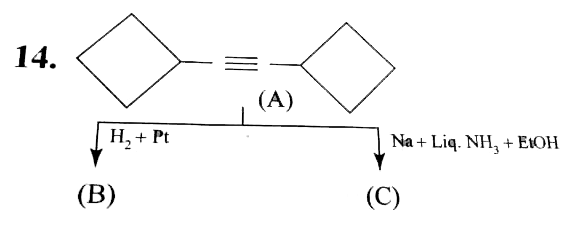
Compound (B) and (C) are :View Solution
Compounds (B) and (C) are :View Solution
Compounds (B) and (C) are:View Solutioni. Compound (A)

ii. Compound (B)
iii. Alkene (C) and alkane (D)
Compound (A) is:View Solutioni. Compound (A)
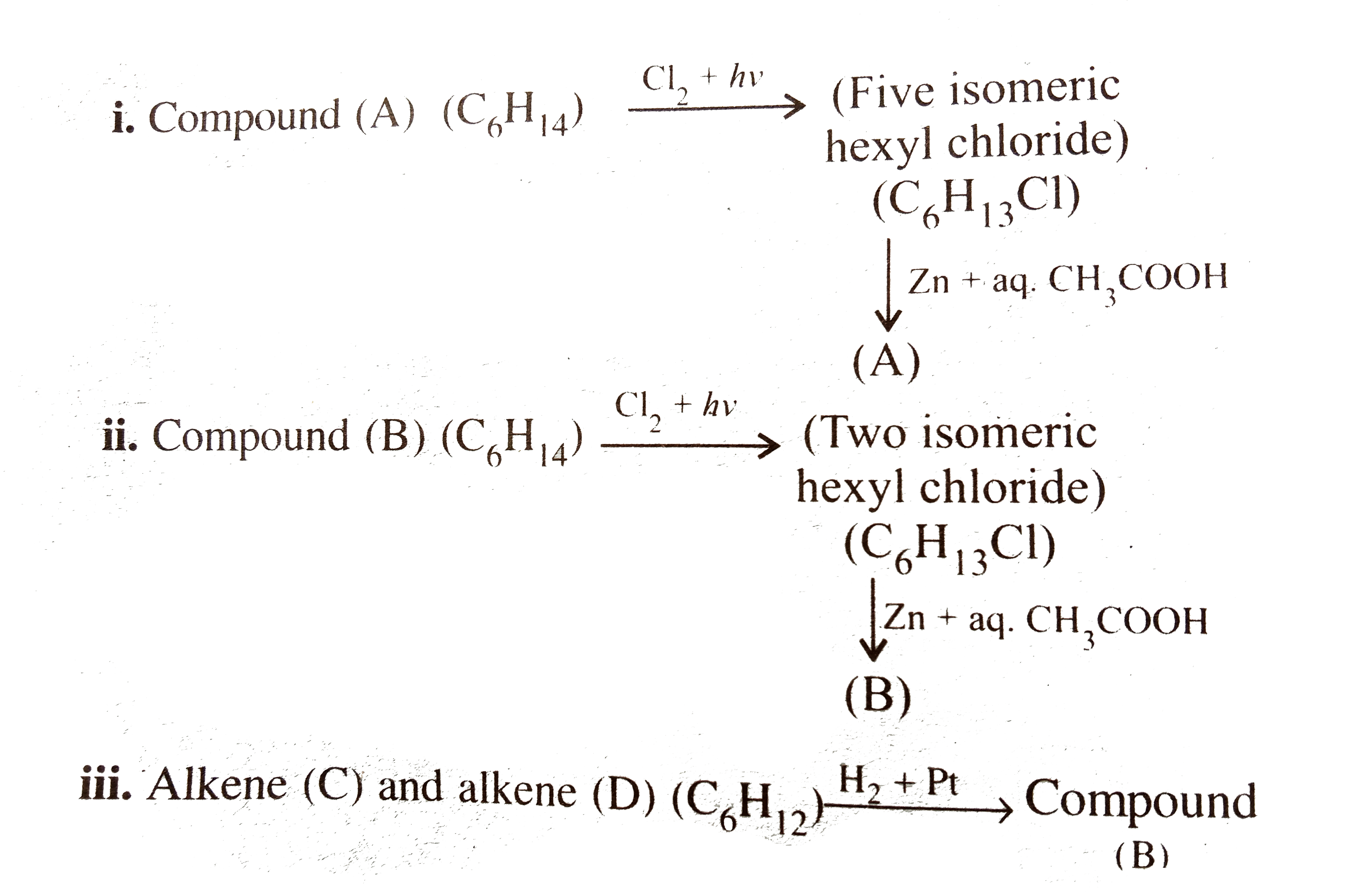
ii. Compound (B)
iii. Alkene (C) and alkane (D)
Compound (A) is:View SolutionThe compound which is not isomeric with diethyl ether is:
View SolutionWhen boromobenze is monochlorinated. Two isomeric compounds (A) and (B) are obtained. Monobromination of (A) gives several isomeric products of molecular formula C6H3ClBr2. While mononbromination of (B) yields only two isomers (C) and (D). Compound (C) is identiacla to one of the compounds obtained from the bromination of (A). However, (D) is totally different form any of the isomeric compounds obtained from the bromination of (A). Give the sturctures of (A),(B),(C) and (D), and also the structers of the four isomeric mononbrominated products of (A). Support your answer wtih resoning.
View Solution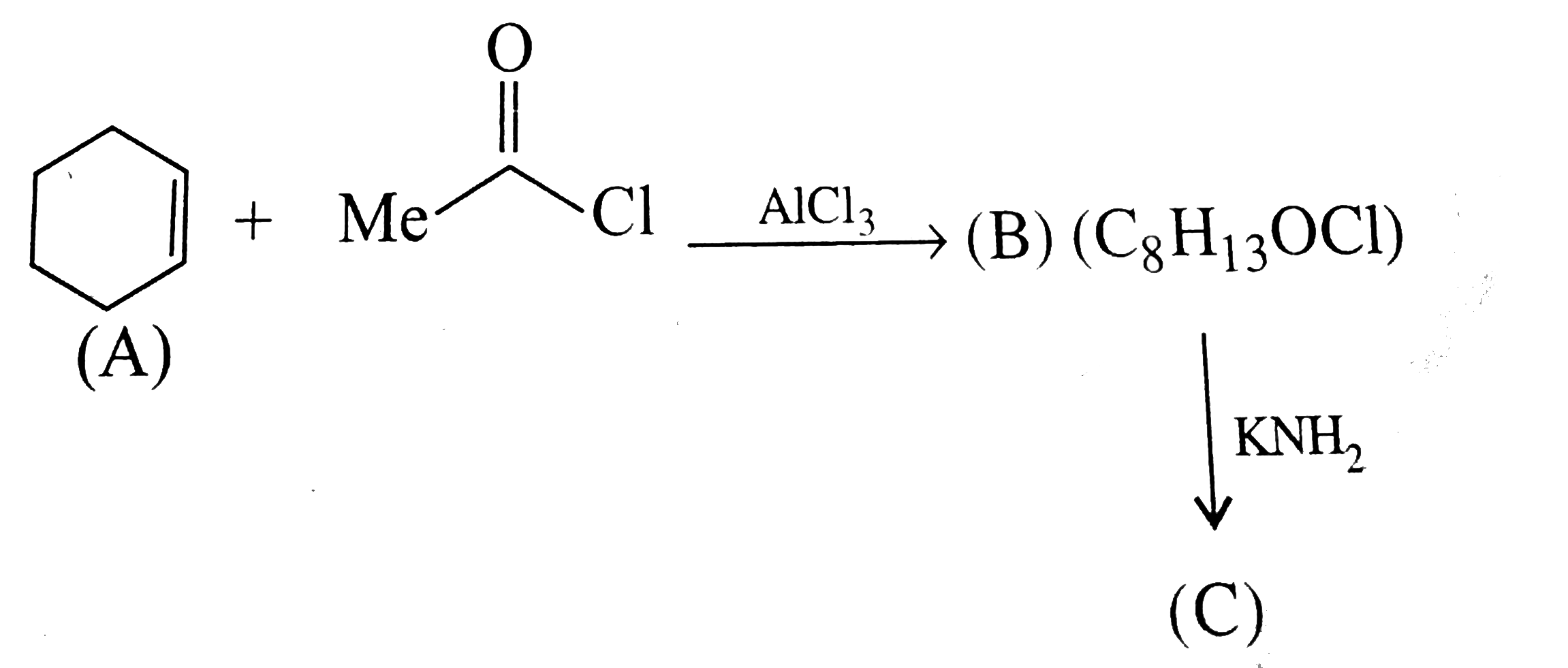
Compounds (B) and (C) respectively are:View Solution
Compounds (B) and (C ), respectively, are:View Solution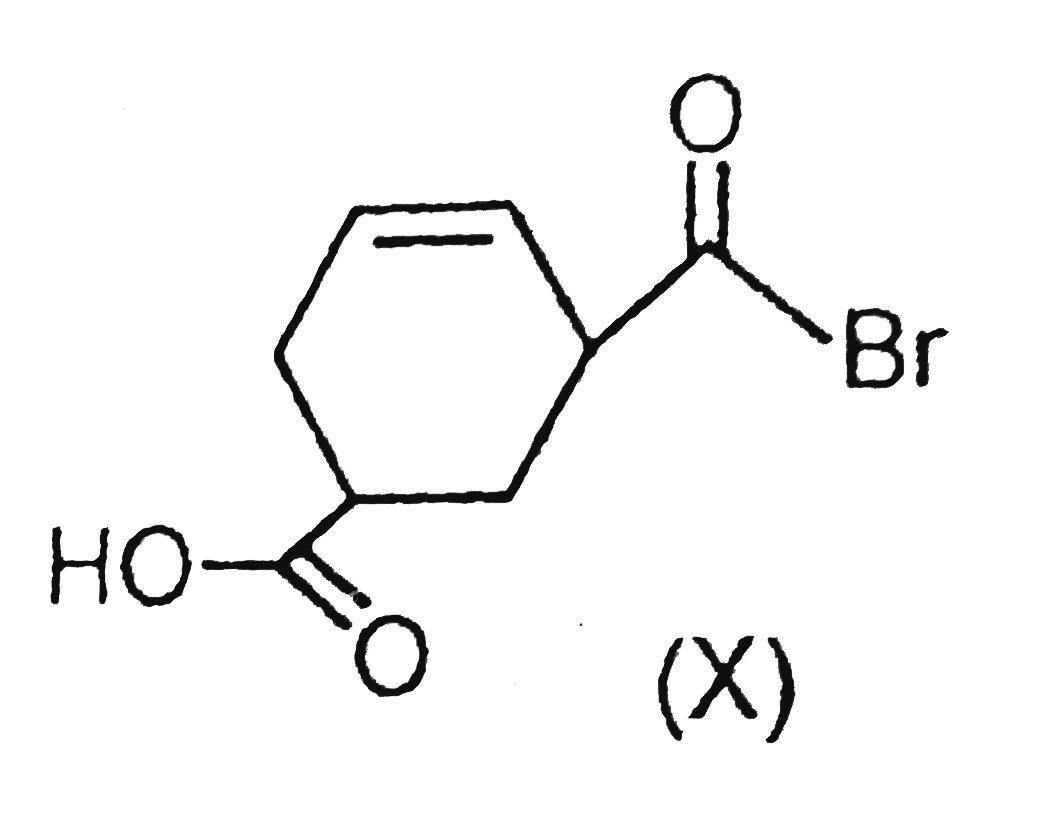
Consider the following compound (X):
Q. Which of the following is correct regarding the given compound (X)?
(i). The IUPAC name of the compound (X) is 3-bromocarbonylcyclohex-4-enoic acid.
(ii). Trans form of compound(X) is optically inactive.
(iii). Compound (X) can show optical isomerism.
(iv). Total stereoisomers of compound (X) is four.View Solution
